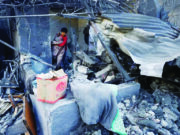June 06, 2025
Environment and Climate Change Canada (ECCC) has issued special weather statements for several parts of the province, including the Fraser Valley. This is not a Heat Warning or an Extreme Heat Emergency in the BC Heat Alert Response System, but we will experience the first stretch of high temperatures of the season.
Fraser Health encourages people to take steps to reduce heat-related risks, and emphasize water safety, as they seek to cool off in rivers and streams and at beaches throughout the region.
Now is a good time to begin preparing for possible heat warnings and extreme heat events this summer.
Preparing for hot weather betturkey
The first high temperatures of the season can lead to some people overheating because they are not yet accustomed to warmer weather. There are some basic steps you can take to ensure you and your family remain safe and healthy during warmer temperatures.
Keep a thermometer somewhere it is easy to monitor so you know when your home is getting too hot. Health risks due to heat can increase at indoor temperatures of 26°C and higher and sustained indoor temperatures over 31°C can be unsafe.
Identify a cooler space in your home and prepare it so you can stay there at night, if possible. You may need to change daily living arrangements; consider staying with friends or family.
Use awnings, shutters, blinds, or curtains over your windows to keep the sun out during the day.
Shut windows and close curtains or blinds during the heat of the day to block the sun and to prevent hotter outdoor air from coming inside. Open doors and windows when it is cooler outside to move that cooler air indoors.
Remember that fans do not cool the air or your body and should not be used as the main source of cooling.
If you have an air conditioner, make sure it works and use it to cool your home.
If it is challenging to cool your home, find an air-conditioned space or shaded outdoor location close by where you can cool off. Consider places in your community to spend time such as libraries, community centres, movie theatres, shopping malls, or recreation spaces including the ocean, rivers or lakes. Stay for a long period of time to cool your core body temperature.
The BC Centre of Disease Control (BCCDC) also has a broad range of heat-related information on its website, including information on the different types of heat alerts, how to prepare for warmer temperatures, symptoms of heat-related illnesses, those most at risk during warmer weather, and ways to stay cool.
Who is most at risk?
It is important to monitor yourself and family members, and to consider developing a check-in system for neighbours and friends who are at higher risk during warmer weather. The most susceptible individuals include:
Older adults
people who live alone
people with mental illnesses such as schizophrenia, depression, or anxiety
people with pre-existing health conditions (e.g. diabetes, heart disease, respiratory disease)
people with substance use disorders
people with disabilities or limited mobility
people who are marginally housed
people who work in hot environments
people who are pregnant
infants and young children
Your health:
Stay in cool spaces as much as possible.
Spray your body down with water, wear a damp shirt, take a cool shower or bath, or sit with part of your body in water to cool down if you are feeling too hot.
Drink plenty of water and other liquids to stay
hydrated, even if you are not feeling thirsty.
Take it easy, especially during the hottest hours
of the day.
When outdoors, stay in the shade and use a broad-spectrum sunscreen with SPF 30 or more…
Source: fraserhealth.ca/news/
6.7
C
Vancouver
Wednesday, November 5, 2025




























